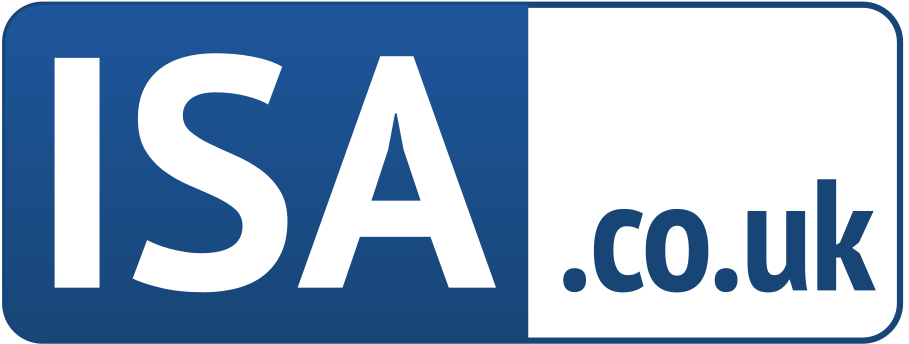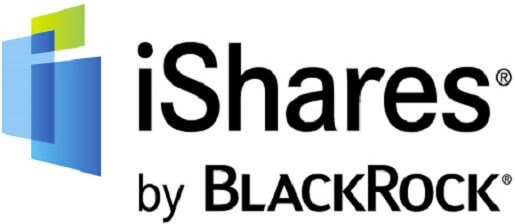Compare iShares ISAs
Compare ISAs from iShares and other ISA options available.
Investment ISAs put your capital at risk & you may get back less than you originally invested
- Fund Choice: Tracks FTSE 100 Index. Largest company shares in the index include, Astrazeneca, Glaxosmithkline, HSBC & Diageo. Capital at risk.
- Invest From: £25 pm
A super low cost FTSE 100 tracker ETF fund with a 0.07% pa annual charge. The product has a record of tracking its benchmark to a high degree of accuracy and scored ahead of rivals on this measure.
- Fund Choice: Offers low cost way of accessing exposure to the price of gold. This fund is backed by physical gold. Capital at risk.
- Invest From: £25 pm
The iShares Physical Gold ETC seeks to track the day-to-day movement of the price of gold, less fees, by holding gold bullion. The gold bullion backs the securities issued and is valued daily at the London PM fix price. The gold bullion is held as allocated gold bars with the custodian, JPMorgan. State Street acts as the Trustee. iShares Physical ETCs are exchange traded commodities and are neither funds nor exchange traded funds.
- Fund Choice: Tracks FTSE 350 Index. Capital at risk.
- Invest From: £25 pm
This is a low cost FTSE 350 tracker fund with a 0.16% pa annual charge. The aim of the Fund is to seek to achieve capital growth for investors by tracking closely the performance of the FTSE 350 Index.
- Fund Choice: Tracks companies in the clean energy sector. Capital at risk.
- Invest From: £25 a month or any lump sum
Good to know: A member of the Interactive Investor ACE 40 ,this fund is passively managed by BlackRock and reflects the return of the S&P Global Clean Energy Index (the benchmark). The Index is designed to provide exposure to the leading publicily listed companies in the global clean energy business from both developed and emerging markets. The fund has reasonable ongoing charge of 0.65% pa.
Show More- Fund Choice: Tracks the MSCI World Index. This index is a market cap weighted index of 1,585 companies throughout the world across 23 countries. Capital at risk.
- Invest From: £25 pm
One of the cheapest world equity exchange-traded funds available makes this a great way for investors to generate performance in line with the world’s major stock markets. This ETF seeks to track the performance of the MSCI World index, comprised mainly of large companies from 23 developed markets. Ongoing charges are 0.2%.
- Fund Choice: Tracks S&P 500 Index. Passive fund that seeks to mirror as closely as possible the performance of the 500 largest companies by market capitalisation in the USA such as Apple, Google, Tesla, Berkshire Hathaway & Mastercard. Capital at risk.
- Invest From: £25 pm
This is a low cost S&P 500 tracker fund with a 0.07% pa annual charge. The Fund aims to track closely the performance of the 500 largest companies (i.e. companies with large market capitalisation) within the United States market.
Who are iShares?
iShares are a range of ETFs (Exchange Traded Funds) and Index Funds managed by BlackRock.
iShares manage close to 1,000 ETFs and Index Funds that invest in different sectors, markets, indexes and commodities.
They don’t offer any investment accounts themselves (like ISA accounts), but iShares funds can be held in an ISA account via a Stocks and Shares ISA platform.
What is an ISA?
An ISA account is a type of tax-efficient savings and investment account.
You are not required to pay income tax or capital gains tax on any ISA savings like you are in a standard savings or investment account.
Income tax is usually paid on the dividends and interest you earn on your investments, and capital gains tax is usually paid on the growth of your assets when you sell them.
In an ISA, your savings are always 100% tax-free, even when you come to sell and withdraw your investments.
HMRC allows you to invest up to £20,000 into ISAs in the current tax year, and your allowance refreshes each year.
There are two main types of ISA accounts: Cash ISAs and Stocks and Shares ISAs.
What’s the difference between a Cash ISA and a Stocks and Shares ISA?
The difference between Cash ISAs and Stocks and Shares ISAs is what assets you can hold within the accounts.
Cash ISAs can only hold cash, and you earn interest on your cash savings.
Stocks and Shares ISAs can hold all types of stock investments, from shares to managed funds and ETFs.
Cash ISA features
- Earn a fixed or variable rate of interest on your balance depending on whether you commit to a fixed-term or want easy access
- Cash ISA savings cannot fall in value, but you may be restricted in terms of how often or how soon you can withdraw
- Cash returns are fairly limited in comparison to Stocks and Shares ISAs due to ongoing low interest rates in the UK
- Cash savings can’t fall in value as stocks can
Stocks and Shares ISA features
- Access to invest in the stock market via funds, shares and ETFs
- Create a share portfolio yourself, or invest in a ready-made ISA portfolio managed by professionals
- Stocks can fall as well as rise in value, so you can lose money in a Stocks and Shares ISA
- You can usually make withdrawals at any time, and the process takes about one week
What is a Share dealing ISA?
To hold iShares ETFs in an ISA account, you’ll need to open a Stocks and Shares ISA and not a Cash ISA.
A Sharedealing ISA is another name for a Stocks and Shares ISA that is specifically designed for self-select or DIY portfolios where you pick your investments yourself.
What can you hold in a Sharedealing ISA?
Here are some of the most common investments to hold in a Stocks and Shares or Sharedealing ISA:
- Shares (shares of individual, publicly listed companies)
- Managed Funds (Unit Trusts, OEICs and Investment Trusts – investment companies that invest your money in a specific sector or market)
- ETFs (Exchange Traded Funds that track a market)
- Index Funds (like ETFs, but not traded on a live stock exchange)
What is an ETF?
iShares funds are ETFs and Index Funds, which means that they are not actively managed by fund managers picking the best companies to invest in.
Instead, they simply aim to replicate the overall performance of a particular stock index, sector, market or commodity. This could be, for some examples, the FTSE 100, Japanese Income Funds, or gold.
They are also different to Managed Funds in that they have much lower charges because they don’t require any investment research and expertise.
Despite not benefiting from investment expertise, ETFs and Index Funds can often outperform Managed Funds operating in the same sector while also benefitting from reduced charges, which makes them an attractive option for experienced investors.
What are the charges for an iShares ISA?
If you hold an ISA and invest in iShares funds, then you’ll be investing in a Stocks and Shares ISA.
There are a few main charges to be aware of for Stocks and Shares ISAs:
- ISA Provider’s AMC (Annual Management Charge)
Your ISA platform charges a percentage against your portfolio each year which can vary depending on what investments you hold and how much your portfolio is worth.
- Fund Manager’s Ongoing Charge (OCF or TER)
ETF and Index Fund management charges are very low compared to Managed Funds, but they’re still there to cover the administration of the funds.
You can find the exact charge details in the Key Investor Information Document (KIID) of the funds you’re investing in.
Some other, ad hoc Stocks and Shares ISA fees to be aware of are:
- Dealing fees (for buying and selling ETFs)
- Exit or transfer out fees (for closing your ISA)
How do I open an iShares ISA?
You’ll need to open a Stocks and Shares ISA account with an ISA platform provider that allows you to invest in iShares funds (most will do), and you can do this online.
Make sure the Stocks and Shares ISA you open allows you to pick your own investments, and do plenty of research on your chosen iShares ETFs before you invest.
Remember, your investments can go down as well as up and you could get back less than you originally invest.

